INTRODUCTION
To follow is Chapter 6 in a series that is my personal transformative journey from my early years. This story began with me living as a long term unemployed single parent with two children with different fathers, never being married. I was definitely on the bottom rung of society. I lived in the highest unemployed town in the UK with the demise of its Iron and Steel, Chemical and Shipbuilding industries, thus experiencing years of poverty and ostracisation. This is the story of how, supported by a strong Christian faith, I deeply analysed and navigated my way through it all, to an absolutely fulfilling life.
In the light of what’s happening in this chaotic world today, I feel moved to tell my story with all its different facets, because my main hope is that the reader will see the human face of the marginalised. Then, hopefully, gain a more compassionate understanding of all those who live on the margins of society. I hope the reader finds clues on how to make connections with people different from them, or to change the top down competitive economic system so all people are justly valued whether they were in paid work or out of paid work.
I invite the reader to pick any chapter and, if it resonates with you, to organise a zoom working group in the New Republic of the Heart community to discuss and explore any particular issue or let it inform the work you are already doing.
I acknowledge that every single one of us has our own unique experience from our own unique perspective waiting to be heard and learned from. This is simply my experience. I’d love to maybe one day hear and learn from yours.
Linda Granville
To read Chapter 5, click HERE.
◊◊◊◊◊◊◊◊◊◊◊◊◊◊◊◊◊◊◊◊◊◊◊◊◊◊◊◊◊◊◊◊
Chapter 6 ~ FROM VOLUNTEER TO INTERFAITH WORK
“Never before probably has the need for interfaith commitment been nearly as great as it is at this very moment.”
~ Walter Cronkite
My first paid job in 2001 as a Church Related Community Worker (CRCW) was to work with five different Christian denominations in Merseyside. They included the United Reformed Church, the Baptist Church, the Catholic Church, the Salvation Army, and the Church of England. My job was to help the local congregations look beyond their church buildings into issues affecting their local communities.
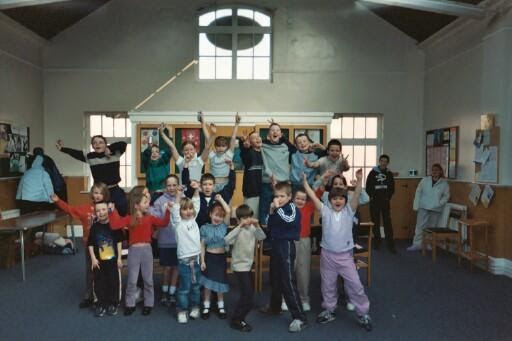 I supported several of the churches with their youth groups and breakfast club. I also helped the churches in their ‘Faith and Light’ group which supported children with severe ability challenges. The local council set up a 3-month pilot youth club in this area of high deprivation with one paid youth worker. It was crying out for volunteers as it attracted such a large number of young people. I signed on and realised how greatly challenging life circumstances were for many of these young people. Thank goodness I was a good table tennis player as it gave me a bit of ‘street cred’ with the toughest of them!
I supported several of the churches with their youth groups and breakfast club. I also helped the churches in their ‘Faith and Light’ group which supported children with severe ability challenges. The local council set up a 3-month pilot youth club in this area of high deprivation with one paid youth worker. It was crying out for volunteers as it attracted such a large number of young people. I signed on and realised how greatly challenging life circumstances were for many of these young people. Thank goodness I was a good table tennis player as it gave me a bit of ‘street cred’ with the toughest of them!
A few of the children in the church youth groups had older brothers and sisters in the secular youth group. However, I admit to a bit of frustration when the secular youth group cried out for volunteers to help them. Nobody from the churches did, although one was looking to set up its own youth group. This reminded me of how a lot of organisations, not only churches, stay in their own little castles without seeing a collective need for the wider community.
In September 2001 I attended a Church Action on Poverty ‘Debt on Your Doorstep’ hearing in Birkenhead and listened to four people’s experience of debt. One speaker, a single parent whose husband had left her with five children, spoke how she borrowed £200 from the Provident Society to buy Christmas toys. At 167% interest and borrowing from Peter to pay Paul, her £200 loan soon turned into well over a £5,000 debt. She never had more than £200 in her hand. She told us that she stopped buying Christmas toys, and instead only buys each child a birthday present so that the cost is spread over the year. While one branch of the ‘Provident’ was sending her to court, another branch was knocking on her door three weeks before Christmas with a lorry load of toys asking her to buy them. A local MP stood up and said, “The government is helping people like Theresa with childcare costs so she can go to work.” I could see and hear the audience jeering and muttering, “She should go to work.”
The politician’s statement infuriated me, and compounded the myths about single parents and society’s negative attitude toward them. It brought back my own past prejudicial experiences. I couldn’t help myself. I stood up and went to the podium, turned to Theresa and said, “I’m sorry, Theresa, but you are condemned to live a life of poverty for a long time to come if attitudes and the policies they produce don’t change.” Then I turned to the politician and said, “It’s true that single parents are getting help from the government, but only with paid work benefits, and only for one child – and if she was lucky (at that time), maybe 1 1/2 children. Single parents who choose to be at home to look after their children, for whatever reason, are the poorest in society, even though they arguably do the most important job in society – to bring up a child. Theresa has five children. Who was going to value her in the really hard work she already does bringing up her five children?” I suggested Time Banks and Citizens Income.
The Debt Hearing only gave people’s experience of debt, but failed to give solutions on ways to help eliminate it. I was so moved by Theresa’s story and so incensed by the politicians’ ignorance of how poverty is perpetuated. Was it ignorance? Or was it scapegoating away from bad government policies?
It’s ironic that in 2009, after the world banking system collapsed and unemployment rose across the world (including Britain), corrupt bankers got rewarded despite their grievous misdemeanours, and within one week, the same British government, yet again, picked out single parents as the economic scapegoats and cut their benefits.
Scapegoating, sadly and erroneously, deters individuals and governments from facing up to real personal, cultural, and structural problems. If scapegoating continues to be the norm, holistic solutions to value all people will never be found.
An example of this was just before single parent benefits were cut, there seemed to be a deliberate government ploy to cut them at the same time that the whole country was celebrating the run up to the D. Day Anniversary Celebrations. I wondered if the media was in cahoots with the government. As the celebrations were beginning, suddenly across all our screens, the media covered the usual single parent horror stories while the government proposed cutting benefits from the perceived “undeserving single parent dole scroungers” and giving more to the deserving war heroes. To this day I don’t know if the war heroes got more money as they rightly deserved. But this was a very subtle but successful way of getting public opinion on the side of cutting single parent benefits. Undeserving poor were set against perceived deserving poor!
The new rules revealed that any new single parent would be approximately £11 down in their income. Those that were currently receiving Single Parent benefits would stay the same. However, if that single parent took any kind of paid work and later came back to claim benefits, they would be at the new lower level. This terrified a lot of single parents who knew there was not any regular work around, especially in Teesside. And they knew that jobs allocated were usually low paid, part time, or temporary (which was not enough to live on when bringing up children on your own). Many single parents who tried to work a temporary Christmas job (because there were usually a lot of those around the holidays) were now scared to, knowing that they would return to the lower benefit. This encouraged single parents to go to loan sharks for Christmas toys. I wrote to my local MP and Tony Blair. Later my MP told me that Tony Blair called him into his office to discuss my letter.
With other complainants, the rules were then changed but only so that any single parent who got a job would have 9 weeks leeway to find another job before their benefits were cut. This was okay if job hunting happened over Christmas, but for the rest of the year, single parents knew they were going to be exploited or must struggle even harder.
After the Birkenhead Hearing, I contacted seven different organisations in the Wallasey area that had anything to do with debt, including the local churches. Together we formed an Alternative to Debt group and put on another Debt Hearing, but this time after listening to people’s experience of debt, we held afternoon workshops on Citizens Income, Credit Unions, Time Banks /LETS Schemes and Food Co-operatives. I led the ‘Time Bank’ Workshop , then after a public meeting, raised £30,000 to set up a Time Bank in Wallasey.
I lost contact with Theresa after the Birkenhead hearing but before I left Wallasey nearly two years later, I tried to find out what happened to her. I was told she was by then seriously ill in a mental hospital and all her children fostered out. All this, the consequences of the many unjust structures that she had to face as a single parent with five children, including borrowing £200 simply for their Christmas toys, and 167% extortionate interest by the Provident Society.
WORKING INTERFAITH
The church then sent me to work as a Church Related Community Worker (CRCW) in a wonderfully multicultural area of Nottingham, Hyson Green. There were 51 languages on my street. I was overjoyed to find National Coalition Building Institute, the organisation that I first came across in Austria years ago that ran workshops on Welcoming Diversity, now had a group in Nottingham. I re-trained with them to help run their workshops.
Soon after I first arrived in Nottingham, the 7/7 London suicide bombings occurred. With a local multi-faith organisation called Faiths in Action, we organised a gathering in the local park with speeches from local religious leaders of eight different faiths, along with school children. We set up gold balloons for the number of people who died and 100 white balloons with prayers attached for those who were still suffering, including those in Hyson Green.
We did this to come together in solidarity against the bombing.
Faiths in Action had male and female participants, and together we put on different seminars. One such seminar was ‘Ethical Banking in Faith Communities’. At the time of the world banking crash in 2008, caused by gambling on the stock market, we learned about the Islamic banking system. There are several advantages to Islamic banking as shown below:
Transparency – Guiding customers through the risks and costs associated with each product is of utmost importance in Islamic Banking.
Strong Ethical Practices – Sharia law stipulates that banks cannot invest in practices that could be considered unethical, including gambling, weaponry, pornography, and alcohol.
Fairness – A core principle of Islamic banking is profit-sharing, where the risk is shared between both the bank and the customer. This allows a more equitable distribution of income and wealth.
Open to All- You don’t have to practise Islam to bank in an Islamic bank, enabling anyone access to their services.
Discouraging Speculation – Islamic banks are prohibited from engaging in speculative transactions. This lowers the overall risk of banking with a Sharia-compliant bank.”
We organised a seminar on ‘A Faith Response to Environmental Issues.’ I introduced a programme called ‘Eco Congregations.’ Eco-Congregations is an ecumenical programme helping churches make the link between their Christian faith and environmental issues, and to respond with practical action in the church, in the lives of individuals, and in the local and global community. I hoped this programme could permeate through different faith communities too. There are now many Eco Congregations around the world including England, America, Southern Africa, Hungary, Norway, Canada, and Scotland which are all independently run. For more information: ecocongregation.org.
Still recognising that a lot of women in the area were oppressively subordinate, after the 7/7 London bombing, I set up and co-ordinated a Faiths in Action Women’s subgroup. Then, along with other Muslim and Sikh community development workers, we set up a multicultural women’s event, ‘Celebrating Women.’ After I gave statistics on the number of women abused locally and worldwide, we brought together Indian, Pakistani, Chinese, English, Turkish, Angolan, Iranian, women from our local community, from all faiths and none to sing, dance and share poetry. While the lady mayoress rattled her bucket, everyone gave their time freely and raised £500 for the Pakistan / Indian earthquake appeal. The 150 strong audience had a good laugh when I was on stage wiggling my hips with the Sikh women.
In many cultures, women will not mix with men and vice versa. I look to the day when they will mix on an equal footing, although it is evident how freely women speak when men are not around.
My Sikh community worker friend who was involved with our women’s event, later set up a seminar in the Sikh Community centre to give a voice for those local women in the community who had experienced Domestic Violence.
One Sikh woman told us how she was forced to have an abortion twice because the foetus was female. She was now living in fear, as she’d run away in hiding from her husband because she was pregnant again. Two women spoke from Somalia and the Middle East who have experienced female genital mutilation. I was asked by my Sikh friend to give my own story of abuse and a Muslim woman commented how she was shocked that English women were abused too. She always thought it only happened to women in her culture. One Turkish woman stood up and passionately yelled, “It all starts at birth! When in hospital having my baby, I could tell if other women had a boy or a girl. If a boy, lots of visitors crowded around the bed. If a girl nobody came. If we are going to fix this problem we have to start from birth!”
Our Women’s Faiths in Action group was so culturally diverse that whenever there was a climate disaster or war zone somewhere in the world, it seemed that at least one in our group would have a relative living there. When this happened, we would put on another talent show and raise more funds to support our women and their distant relatives. This was something else that brought us closer. It importantly promoted loads of self-esteem between these local women and showed how we could all succeed by working together, crossing religious barriers, helping each other, and having great fun doing it.
Fundraising for Gaza and the Haitian Earthquake disaster.
My next-door neighbour couldn’t speak English so I thought I would learn Urdu to be able to communicate with her. Three weeks into the lessons I realised she didn’t speak Urdu, but rather spoke Gujarati! (smile) Instead, I decided to use my time to teach English to those who couldn’t speak English at the Pakistani Women’s Centre. This seemed to be a more needed thing to do.
While in the centre I was surprised to be led upstairs to the prayer room. There, women were prostrating themselves, repeating prayers in Arabic. I didn’t understand a word they were saying so I sat on a chair at the back and said my own prayers to myself in silence. This is when I first met Zarifa. She came across to me and said, “Oh, I see you want to become a Muslim.” “Oh no,” I quickly replied. “I’m a Christian, but Jesus said, ‘Love the Lord your God with all your heart, with all your soul and with all your strength and love your neighbour as yourself.’ You’re my neighbour and how could I possibly love you if I don’t even know you? I’m here to get to know you.” From then on Zarifa and I became firm friends, and our friendship continues to this day. I know I disappointed a few church members I worked with on why I didn’t even try to convert anybody. I am still a Christian and Zarifa is still a staunch Muslim, but we both lived into that loving space between us of a friendship that transcended religious confines.
There were some elderly women in the English class who for years had depended on their children to translate everything for them. Once their children left home to get married or go to university, the mothers became even more isolated without being able to communicate to anyone in English. I heard of a woman who was found unconscious, because she couldn’t read the label on her tablet bottle and overdosed. This story illustrated how important it was for me to teach medical issues as soon as possible. It was in this class that I realised the full scope of their isolation. One woman who had lived in our city for many years didn’t know of the community centre that was just around the corner from her. It provided lots of women’s activities to which she was oblivious. Another who also had been here for thirty years had only twice been into the city centre, a six-minute tram ride away. Another young girl had experienced a forced marriage, was brought from Pakistan leaving five loving sisters behind on the family farm. She dearly missed them. She was brought to a tiny street house. She wasn’t at all allowed to go out and was cruelly treated as a servant. I felt so sad and helpless listening to her story. The only place most of these women were ‘allowed’ to go was the local Wednesday open air market or to this English class.
When occasionally only a few turned up, I resolved to fit them in my car and take them to a local beauty spot near a lovely lake and conduct the lessons there. When this news got out, more people joined the class, too many to fit into my car. So, on occasion I held the class walking around the local area to translate everything we saw into English and to discover different local community ‘women only’ events available to them. This included the nearby community centre where they could sign up for some of the bus trips that were often available.
A lot of women in my multicultural area were oppressively subordinate and many of us Christians shrugged it off saying, “Well, it’s their culture.” I might add that this is culture and not to be mistaken with religion.
My next-door neighbour, a dental nurse, who aspired to become a Health and Safety Inspector and who lived in her parents’ house, was taken to Pakistan and forced into a marriage. She begged her mother not to let it happen. Her mother was very proud to show me the six-hour video of her engagement and marriage. I commented how utterly miserable her daughter looked through the whole of the video. She looked surprised and said, “Oh, girls always have to look miserable when they get married. That’s our culture.” In the video, I saw my friend sitting in the middle of a big double bed, heavily veiled, surrounded by men then asked, “Will you marry this man?” Later in retrospect my friend told me, “Linda, how could I possibly have refused? I would’ve brought shame to the family.”
She returned to live next door with her husband and was not allowed to go back to work or leave the house or even use the computer. The main big supermarket was just across the street, but she was never allowed to go, unless with a chaperone. She was an unpaid servant for the whole family. Later she had a baby, but her husband refused to buy food for it, saying that it was the mother’s job. Her husband was always telling her to kill herself. When she told her mother about this, she was told to put up with it because she (her mother) had to. She felt even more alone when her younger sister took her mother’s side. It wasn’t until her sister had a secret Afghan boyfriend that things got better between them. She told me that I would never see an Asian girl’s phone anywhere with a boy’s name on it as the parents would confiscate the phone. The boy’s names were usually disguised as girls’ names. I felt shocked that girls had to live in this secretive crazy way.
I suggested she ask her mother to read The Koran, thinking that might change her attitude. She replied, “Oh she has it blasting from the TV every day, but she doesn’t take the slightest notice of it.” The only person she was allowed to speak to was me, but there was always a knock on the wall telling her to get home. She eventually got divorced which again was seen as ‘shameful’ in her community. It seems this kept her even more isolated at home. I gave her lots of information on Asian Domestic Violence support agencies that could help her. I hoped she would contact them before I retired and left the area so I could support her through it all. I visited her years later after I retired and she was still living in her parents’ house, assuring me she was happy and content. After her divorce, her husband landed a very good job in the Mosque as secretary to the local Imam. Enough said.
I know by the stories I’ve heard that lots of things happened behind closed doors for many other women in this community. Compared to Domestic Violence in white communities, there are even more added problems for Asian women. Family honour was at the top of the agenda. Being seen by the community as having this honour was imperative.
Leaving a husband was seen to be shameful and could ostracise a woman from the whole of her family including the whole community, with absolutely nowhere to turn, no matter how innocent she was. Family honour always came before anything else no matter how twisted that was and no matter who suffered. It was usually the woman, and some to the point of being murdered.
How long are we going to allow culture to override oppression? And when many Christians confine themselves to be involved only with Christians, we are missing out on our neighbours’ sufferings. I was always looking for opportunities to build bridges of communication between faiths. One time I fasted alongside my Muslim friends for the month of Ramadan simply to understand them. This certainly brought us closer together and built trust.
Muslim Hands, an international Muslim charity who had their international office near my home, were having sponsored events to raise money for their national annual Green Ribbon campaign for children in war zones. I tried to encourage the churches to join them. I felt it was a great opportunity to meet in friendship, with helping those children as our common goal. I discovered Muslim Hands and my own local church supported the same orphanage in Baghdad.
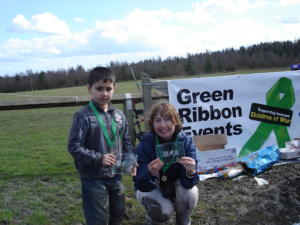
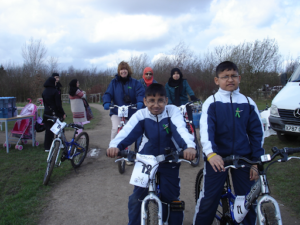 On a sponsored bike ride one sunny morning, only two of us Christians joined the Muslims in what turned out to be torrential rain, gale force winds, hailstones as big as golf balls, thunder, and lightning, and then SUNSHINE again. Along the way, a tree got struck with lightning across our path. This all certainly added to relationship building!
On a sponsored bike ride one sunny morning, only two of us Christians joined the Muslims in what turned out to be torrential rain, gale force winds, hailstones as big as golf balls, thunder, and lightning, and then SUNSHINE again. Along the way, a tree got struck with lightning across our path. This all certainly added to relationship building!
Also, for the Green Ribbon Campaign, I climbed to the top of Mt. Snowden (the second highest mountain in the UK). I was 60 at the time. I didn’t expect it would end up with just me along with 73 Muslim men. I tried to get the local churches involved with this again. Some were enthusiastic at first, but unfortunately I was the only one that ended up doing it. I must admit I became extremely nauseous toward the top. BUT I WAS DETERMINED TO REACH IT!
The picture sees me hanging on to the summit plinth for grim life. Even though I shuffled painfully slowly down to be last off the mountain, I didn’t let the GIRLS down!
Many Christians told me afterwards it was a waste of time for me to do it by myself. What did it achieve? Maybe that would have been true if I just left it at that. However, I met with Tarik, the Muslim co-ordinator of the event from Muslim Hands, and we both tried to analyse how it could be done better next time. I realised that the long-time pre-arranged sponsored walk up Snowden was in the middle of Christian Aid week, and was also on a Sunday when many Christians would be in church. Some Christians preferred to raise funds only for Christian charities anyway and probably it would be the same for many Muslims. Sadly, I feel, without all seeing the wider picture.
I felt that maybe if the Christians were encouraged by Christian Aid nationally to support each other, then Christians locally might feel it’s ok to raise funds alongside Muslims and maybe eventually vice versa, for the sake of friendship and community cohesion. I then, encouraged by Tarik, rang Christian Aid in London and told them the situation. They were very excited and enthusiastic about the prospect of working together. They apparently had sought to work with Muslim Hands before.
Christian Aid then came from London to meet with Muslim Hands in Hyson Green for a very successful meeting. Unfortunately to my chagrin, I wasn’t asked to attend but was kept informed by Tarik. Another meeting was planned in London. It was decided that they would support each other with the AIDS pandemic in Africa, and Muslim Hands would support Christian Aid in areas of the Middle East such as The West Bank where Christian Aid doesn’t have access. I also put them in contact with a friend who worked in Africa setting up village cooperatives to grow medicinal plants, especially the Artemesia plant which was brilliant for the immune system and therefore gave a better quality of life for people with AIDS.
A separate Christian Aid / Muslim Hands charity may be set up to work together for AIDS in Africa. We can all get involved, Muslims and Christians, as a catalyst to local bridge building and feel okay about it. God moves in mysterious ways. I am reminded that nothing in God’s work is a waste of time.
Meanwhile to help our women’s Faiths in Action group connect more to each other we were given a great opportunity to be invited to attend a Spiritual Retreat together free of charge for up to 15 Multicultural / Multifaith women on the Holy Island of Lindisfarne, a place of Christian pilgrimage since AD 600. This is talked about in Chapter 7 of this series.
To read Chapter 5, click HERE.

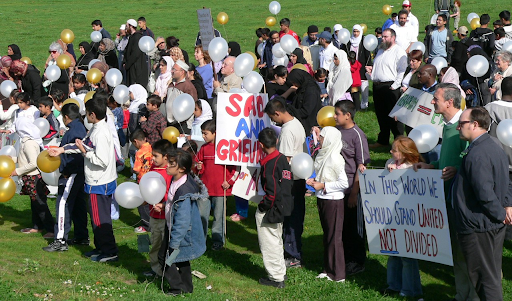
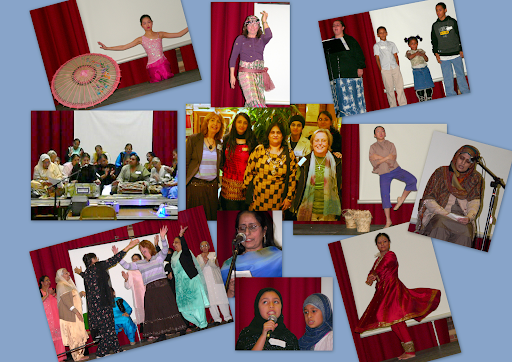
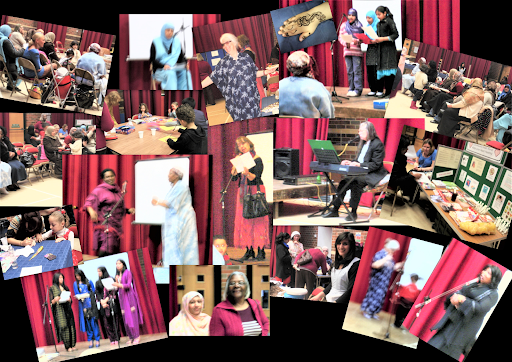
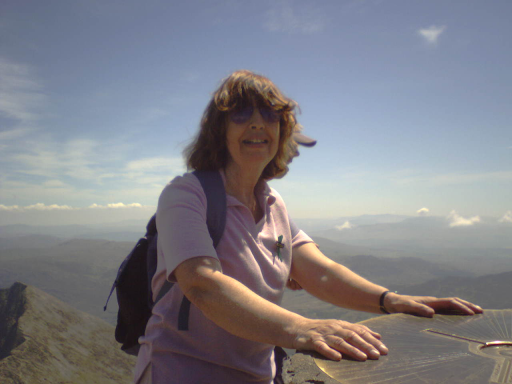
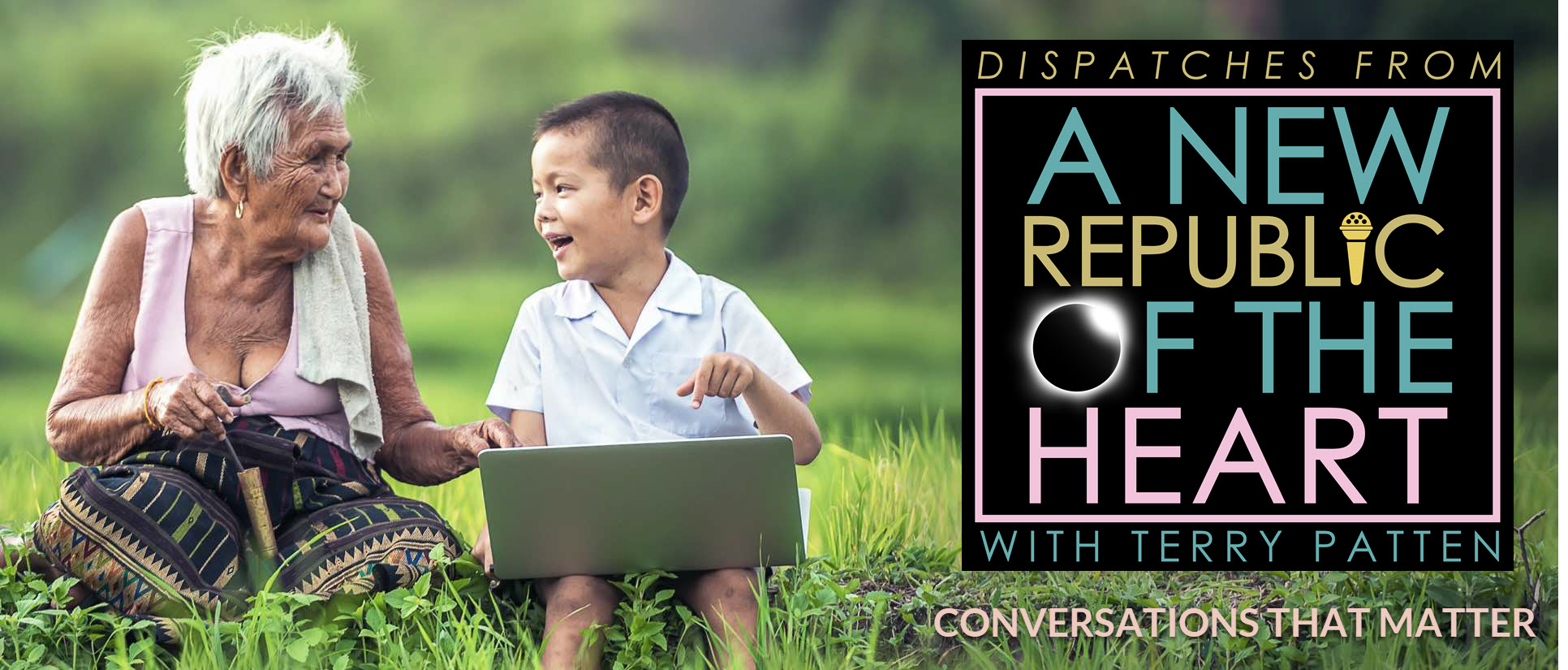
0 Comments